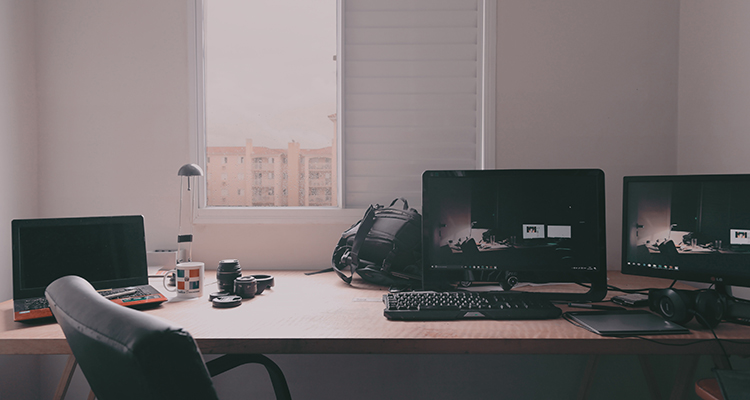A Guide to Insomnia and Work
This article will guide you through how insomnia can affect your working life, along with what you can do about it! We’ll also cover shift working and how you can help yourself to sleep more restfully, no matter what time of day or night.
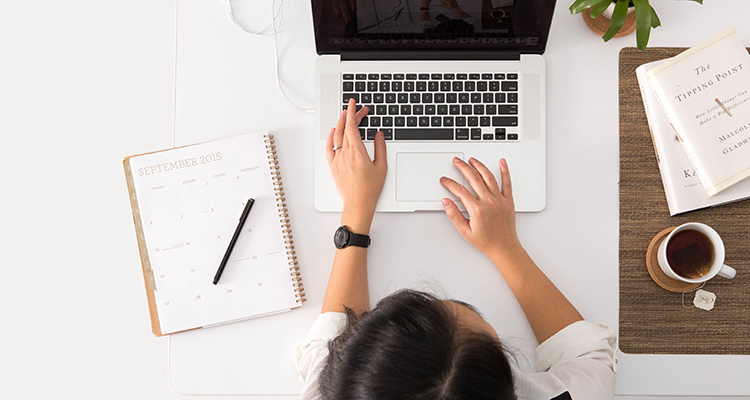
Content
Check out our video on Work Stress & Insomnia!
What is insomnia?
Insomnia is a very common sleep disorder which causes disturbed sleep. You may hear the terms onset insomnia, referring to issues getting to sleep when you first go to bed, and maintenance insomnia, referring to waking up during the night. An individual can struggle with one or both types of insomnia. Insomnia can be defined as, “persistent difficulty with sleep initiation, duration, consolidation or quality.”
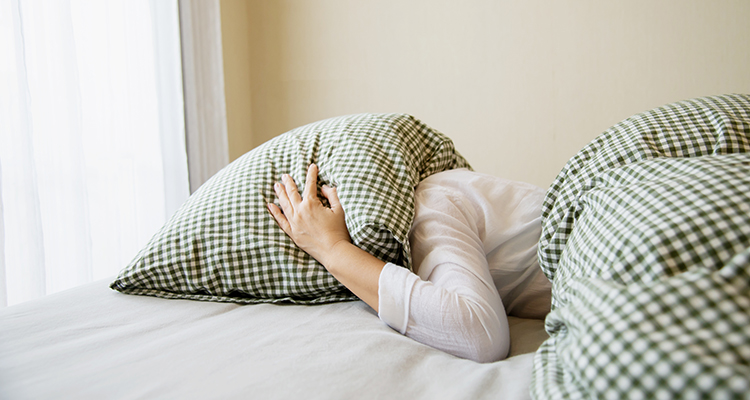
Insomnia can be acute, meaning lasting only a few weeks, or chronic, lasting three months or longer. Since sleep is vital to keep our mind and body functioning properly, insomnia can lead to a myriad of symptoms during the day as well at night. These include things like reduced cognitive function, fatigue, reduced reaction times and more. It’s easy to see how this can make functioning during the day, especially at work, challenging. The American Academy of Sleep Medicine explains that research has shown, “insomnia negatively affects work performance, impairs decision-making and can damage relationships.”
Can work cause insomnia?
There are some factors of working life which could potentially contribute to insomnia. One of the primary reasons work can lead to problems with sleep, is stress. When we experience stress, our mind and body moves into a ‘fight or flight’ state. This means that we’re on high alert, looking for threats and ready to react. In the short term, this is a helpful state which keeps us safe. However, when stress persists, it can cause many health issues including insomnia: we’re simply not designed to cope with prolonged stress.
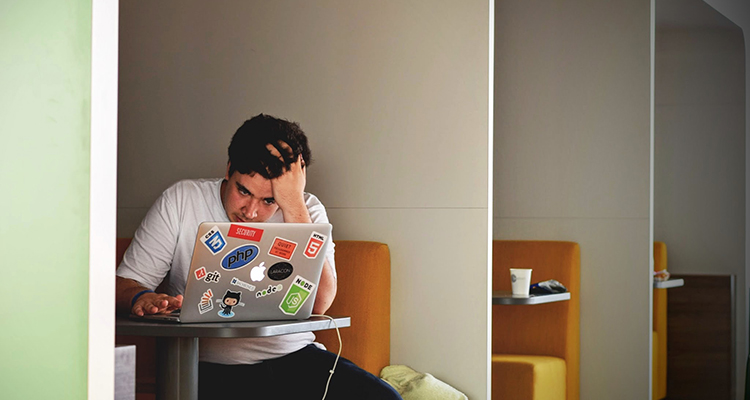
It’s easy to see how when we’re wound up, anxious, and stressed, it would be difficult to relax enough to get to sleep. Since in a stressed state we’re on the lookout for threats, this also makes us more likely to wake up during the night in reaction to external noises. So stress can contribute to both onset and maintenance insomnia.
Many of us have stressful jobs: this might be because you work long hours, or because you’re under a lot of pressure to perform well or to meet deadlines. It might be that you have a lot of responsibility, such as educating others or providing health care. You might be in the public eye, or be trying to get a promotion. Shift work is a very common cause of insomnia, due to stress and other reasons: we’ll discuss this later. Whatever the reason, work can be a significant cause of stress in your life. When this stress is ongoing and you don’t have appropriate coping strategies, it can become overwhelming and lead to health issues including insomnia.
The National Sleep Foundation found that multiple studies show that stress at work can cause insomnia, especially when you aren’t happy in your job. They explain: “In Japan, employees with high stress levels, especially when working hard for limited rewards, were more likely to develop insomnia, and a study in South Korea found a strong correlation between job stress and insomnia even when controlling for variables like work demands and limited rewards.”
How can insomnia affect your performance at work?
Insomnia often leads to more time off work, poorer performance in the workplace, less productivity, and accidents at work. This report states that insomnia causes, “approximately 7% of all costly workplace accidents and errors and almost 24% of the overall costs of all accidents and errors.” We’ll take a look at the results of insomnia which are most likely to affect your working life.
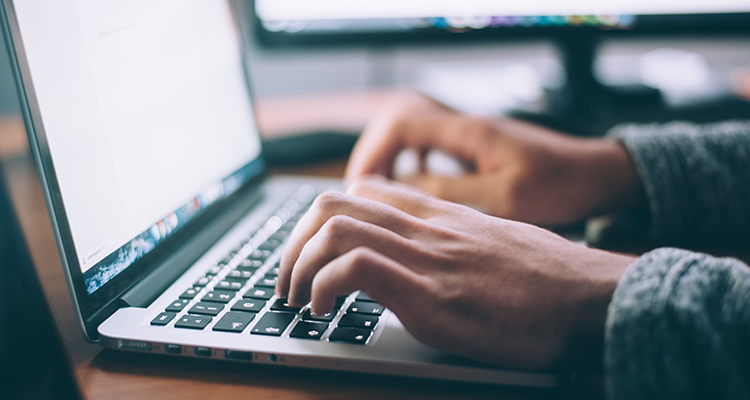
Impaired memory
When we’re asleep our mind processes what has happened during the day and turns short term memories into long term memories. This allows us to recall memories at a later date. This article explains that, “It is thought that during sleep, the hippocampus replays the events of the day for the neocortex, where it reviews and processes memories, helping them to last for the long term.”
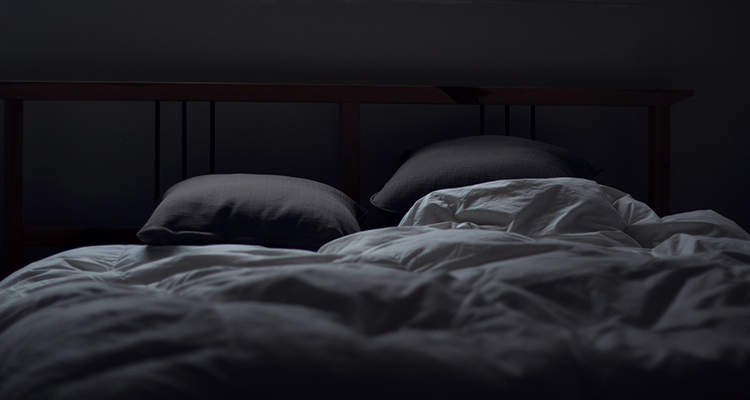
Our sleep moves in stages, between Non-rapid Eye Movement (NREM) sleep and Rapid Eye Movement (REM). All of the stages of sleep play vital roles, and it’s pivotal we’re able to experience every stage of sleep to function optimally. It’s thought that memory processing happens during REM sleep, as well as during some stages of NREM sleep. When these cycles are disturbed, we can have significant problems with memory.
It’s easy to see how problems with memory can cause a range of problems at work. Whether it’s forgetting where you put something; not remembering how to do the task at hand; forgetting vital steps of a process; or not being able to recall vital information, impaired memory can be troublesome and even dangerous in the workplace.
Issues retaining new skills
Problems with impaired memory easily translate into issues with learning and retaining new skills. Sleep allows us to process what we’ve learnt during the day, to remember it, and to translate it into newly developed skills.

The National Sleep Foundation discusses research which has proven that sleep improves learning ability along with speed and accuracy with new skills. They state that during sleep: “memories and skills are shifted to more efficient and permanent brain regions, making for higher proficiency the next day. In fact, sleeping shortly after learning new information has been shown to help retention.”
Picking up new skills is vital when you’re in the workplace, where most of us are constantly learning and striving for improvement. Lack of sleep can cause significant issues with this learning process.
Difficulty problem solving
As well as helping us to remember what has happened, sleep also helps us to form new ideas and solve problems. This 2020 article explains: “While you’re sleeping, pieces of knowledge can be pulled together from different experiences and parts of the brain to create novel concepts or “ah ha” moments.”

When we’re at work, solving problems and coming up with new innovative ideas can help us to carry out our job roles effectively. It can even help us to go above and beyond, allowing us to progress at work. When this process is disrupted due to insomnia, we will have difficult solving problems and developing new ideas.
Reduced attention span
Insomnia can make it very difficult to focus on the task at hand, meaning that your attention span is reduced and you might regularly get distracted. Understandably, this can be very detrimental at work when you’re trying to focus on your job and give it your full attention.
Research shows that this effect is even more pronounced when we look at selective attention. Selective attention refers to the ability to focus on a specific piece of information or on a task when there are other things happening within the environment. Most jobs require the use of selective attention, for example being able to focus on your job when you’re in an office environment, or dealing with a customer when you’re in a busy retail setting.
Fatigue
Fatigue in itself is very difficult to function through. Fatigue is more than just feeling a bit tired: it’s an all consuming exhaustion both mentally and physically. When this happens regularly, you can see how it would interfere with your performance at work when you need to be full of energy and on top of your game.

Problems making decisions
Lack of sleep can cause serious problems with making decisions, especially in a high pressure situation when you need to think quickly and assess danger. Not only do the problems with memory and attention span contribute to this issue, but the way your brain works when making a choice is actually affected by lack of sleep.
The prefrontal cortex, which is the area of the brain which deals with making plans and making complex choices, is notably affected by insomnia. This is also the area of the brain which balances out risks and the potential for reward. This means you’re more inclined to take risks and be impulsive, rather than thinking things through clearly. At least, this can be problematic, but in a job where lives are on the line, this can be very dangerous.
Slower reaction times
Not only is decision making impaired in general, but split second decision making and reaction times are severely impaired by insomnia. Lack of sleep makes it harder for our brain cells to absorb the information it’s getting from our environment and turn it into cohesive thoughts. When we can’t properly process what is happening around us, it becomes really difficult to react quickly. In fact, research shows that insomnia slows reaction times as much as alcohol.
Low mood and lack of motivation
Insomnia also has an impact on mood levels. It can lead to low mood, hopeless, lack of motivation, and even mental illness such as depression and anxiety. It can also cause us to be short tempered and irritable. These mood changes also make us more vulnerable to stress, which feeds the stress and insomnia cycle and worsens other symptoms. It can be much more difficult to regulate your emotions.

When we’re short tempered at work, this can lead to issues with us doing our job, especially if you’re in a customer facing role. It can also cause tense connections with colleagues and even your employer, depending on how severe your symptoms are. When we’re feeling hopeless and lacking in motivation, it’s unlikely that we will put our all into our job. If mental illness becomes an issue, this can lead to needing to take time off work, among a range of other issues.
Reduced fine motor skills
Fine motor skills refer to small but complex movements we use throughout our day to carry out daily tasks. They involve communication between our brain and our muscles to allow us to move naturally, without thinking about it. These movements primarily involve our hands and fingers.
When we’re working, these are the movements we’ll typically use most frequently. Insomnia can reduce our ability to carry out fine motor skills, making them less accurate and slower. This can cause a lot of issues when you’re trying to do your job.
Reduced immune system
Insomnia reduces the effectiveness of our immune system. The cells which are in charge of fighting off infection are reduced in number when we struggle with lack of sleep. This means we’re less likely to be able to fight off infections and are more likely to get ill, more often. The more regularly we miss sleep, the more our immune system is reduced. This can lead to reduced work performance due to illness, and more time taken off work.
Microsleep
The Better Sleep Council describes microsleep as: “a brief, involuntary episode of unconsciousness lasting anywhere from a fleeting moment up to several seconds.” During a microsleep your eyes can be open and you can ‘appear’ awake, but parts of your brain have fallen asleep for a few seconds. You could even be carrying out a task during this time.

During microsleep we are literally in a ‘half-sleep’ state, meaning that we’re less aware and are far more likely to miss something important or to make a mistake. Many accidents are caused by microsleep. Research has shown that fatal accidents can be linked back to micro sleep, including the “2016 London tram derailment and 1986 Chernobyl nuclear accident”.
Insomnia can cause occurrences of microsleep, even after just one night of impaired sleep. When insomnia becomes chronic, microsleep can become a regular occurrence. This can happen at any time and you don’t have control over it. It can happen when you’re at work, when you’re driving, when you’re walking, or when you’re carrying out a task. It’s easy to see how this can be very dangerous!
Insomnia and shift work
Shift work has become increasingly common in recent years, in all sorts of jobs. Unfortunately, shift work can be challenging to cope with and can contribute to insomnia. Let’s take a look at how, and what you can do about it.

How shift work can cause insomnia
When you’re constantly working different shifts and your working hours are always changing, it becomes impossible to get into a regular routine. This can make staying active and practicing good sleep hygiene difficult, as well as making it tough to have a regular sleep schedule. You might have to regularly change the time you go to bed, and set your alarm for different times in the morning depending on what shift you’re working.
How many hours of sleep we need varies depending on our age, but it’s important we get the right amount of sleep for our age bracket, otherwise we struggle with sleep deficiency. Some people start work very early and finish early. While this doesn’t sound like a problem, if they struggle to go to bed and sleep earlier at night, they won’t be getting the amount of sleep they need.
If you work night shifts, it can be very confusing for your body clock. Our body clock (or circadian rhythm) uses cues within our environment to figure out when we should be asleep and when we should be awake. One of these cues is daylight. If we’re working during the night when it’s dark outside, it can be very difficult to stay awake and alert. Likewise, if we try to sleep during the day when it’s light, it can be really tough to fall asleep. If you do get to sleep during the day, there are far more noises and distractions which are likely to wake you up regularly, or prevent you from reaching deeper stages of sleep. This means that even if night shift workers do sleep during the day, it’s rarely the full amount of restful sleep they need.
Lack of sleep can lead to problems in daily life, as well as at work. Yet if your job requires you work in shifts, it’s unlikely this is going to change. So how can you cope? Some small changes to your sleep hygiene could be key to allowing you to get the right amount of sleep.
Improving sleep hygiene if you work shifts
Sleep hygiene refers to any positive habits we use to improve our chances of sleeping well. Improving your sleep hygiene is one of the first things you can do to try to tackle insomnia. As well as regular sleep hygiene, there are changes you can make to your sleep hygiene if you’re a shift worker. These things may sound small, but they really can make a world of difference.

Wind down before bed
No matter what time your bedtime is, it’s important that you take some time to unwind before you head to bed. Set aside 20 minutes to half an hour before bedtime to just relax. You could read a book, listen to some relaxing music, meditate, or take a bath for example.
Turn off electronic devices during this time, such as the TV and your phone, as they emit a blue light which can make you feel more awake. You should also try to avoid stressful conversations or planning for the following day during this time. Focus on doing all you can to get your body and mind in a relaxed place.
Once you establish this as part of your regular bedtime routine, the association will be made between your ‘wind down’ time and sleep. Your body will begin to feel ready for sleep as you start to prepare for bed, no matter what time you’re planning to sleep.
Make your bedroom for relaxation only
Your brain needs to make the association between the bedroom and sleep so that anytime of the day that you go into the bedroom, you automatically start to get into a relaxed state. You can do this by keeping your bedroom for sleep, relaxation, and sex only. Avoid anything stressful or stimulating in the bedroom, such as watching TV or doing anything related to work.
In order to maintain this association, you shouldn’t lie in bed awake for too long. If you can’t get to sleep, or you wake up during the night, get up after around 20 minutes. Go into a quiet, darkened room where possible (even if it’s during the day) and do something relaxing like reading a book until you feel tired again. When you feel tired, you can head back to bed to try and sleep once again.
Make your bedroom comfortable
You need to make your bedroom as comfortable as possible to increase your chances of a restful sleep. You can do this by ensuring you have a good bed and mattress, and making sure you have comfortable blankets and pillows. The temperature in your bedroom is also important. The optimum temperature for sleep is 65 degrees fahrenheit. If you’re too hot or too cold, you’re likely to struggle to sleep.
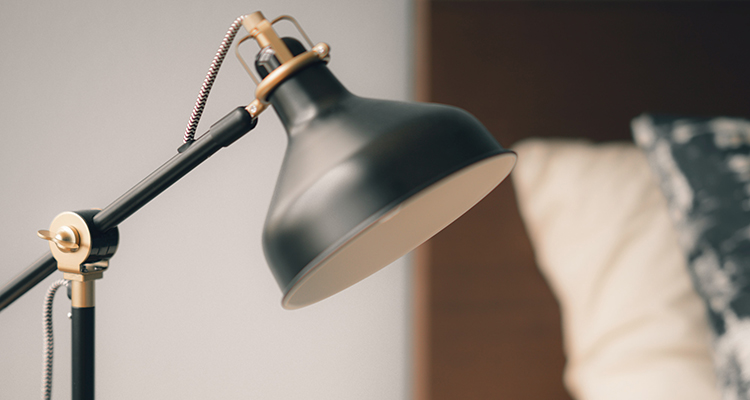
Cut out stimulants close to bedtime
If possible you should try to cut out stimulants like nicotine and caffeine in the few hours before you go to bed, no matter what time it is. These can make you feel awake and make it much harder to get to sleep. You should also avoid alcohol before bed, as this can have the same effect.
Exercise during your waking hours
Exercising during our waking hours (even if that’s during the night), can help to regulate our body clock and make our body and mind tired enough for sleep. It might feel like the last thing you want to do if you’re doing a night shift, but even just 20 minutes of light exercise could be helpful.

Make your bedroom as dark as possible
If you’re sleeping when it’s light, making the bedroom as dark as possible becomes even more important. Daylight will make your brain feel awake, so you need to ‘trick it’ into thinking it’s nighttime. Practical ways you can do this include using blackout curtains or blinds. Alternatively you could use a sleep mask, which covers your eyes to get rid of all light. You could also use dim light in the bedroom before you go to sleep, to help you relax.
Reduce noise
Noise can wake us up, no matter what time of the day or night we’re trying to sleep. If you’re trying to sleep during the day it’s likely that there will be a lot more noise around you. You can reduce this practically by using ear plugs to block out noise. You could also invest in double glazing to block out more of the noise from outside. It’s important you talk to others in your household and explain how important sleep is, so you can ask them to keep the noise down when you’re trying to rest.
Nap strategically
Taking short naps can really help you to feel more alert during a shift, whether it’s early, late, or during the night. Consider taking a short nap just before a shift to energize you. If possible, you could also take a nap on your break or ‘lunch hour’.
Eat regular meals
Even if you don’t feel like it and it feels a bit strange eating at different times of the day and night, you should do your best to eat at regular meal times as you would during the day. This helps to regulate your body clock and give you the energy you need to function during your shift.

Wear sunglasses on the journey home from work
If you’re travelling home from work during daylight, you could wear sunglasses on your journey home to block out light and help your mind prepare for sleep.
Consider light therapy
Light therapy involves the use of a light box, which produces intense amounts of bright light. This is safe and is often done under the guidance of a medical professional. The light can help to regulate your circadian rhythm in the same way as sunlight, to help you establish a more suitable sleep pattern.
You can adjust the time you sit in front of the artificial light to help you regulate your sleep schedule to suit your shifts. The National Sleep Foundation explains: “Exposure to bright light early in a person’s wake period (and dim light at the end of the wake period) has the effect of moving the internal clock earlier. Exposure to light late in the day delays the timing of the internal clock.”
Coping with insomnia at work
Whether or not you work shifts, there are plenty of ways you can cope with insomnia at work. Let’s take a look at how you can get things back on track.

Opening up about your insomnia
If you feel that your insomnia is significantly affecting you at work, the first step is to decide whether you want to open up about it. This is a very personal decision and one that you should take your time with. If you feel you have a good relationship with your boss and that they would be understanding, opening up about what you’re going through could be useful. You could choose to be open with your colleagues too.
Being open might allow your workplace to be more understanding and flexible, making you less likely to get into trouble as a result of reduced performance. They may also put measures in place to help you seek treatment, or to aid you in coping at work. Your employer has a duty of care for all aspects of your health. It’s also important to remember that insomnia is very common and that you aren’t alone: there’s nothing to be ashamed of.
If you do decide to open up about it, it’s a good idea to already have a plan in place with how you are going to try and tackle your insomnia. This lets your employer know that you are being proactive. However, if you don’t feel safe opening up about it at work, then you shouldn’t feel pressured to do so. You can use the other steps we’ll discuss to cope with your insomnia and get things back on track privately.
Improving sleep hygiene at home
Just as we discussed in regards to shift work, sleep hygiene can be useful for all of us. It should be one of the first steps you take to improve your sleep. This can include steps such as:

- Making your bedroom comfortable
- Keeping a regular sleep and wake schedule
- Keeping your bedroom for relaxation only
- Winding down before bed
- Reducing or eliminating naps during the day if you struggle to sleep at night
- Cutting out stimulants near bedtime
- Exercising during the day
- Getting out in natural light to regulate your body clock
- Watching what you eat and drink close to bedtime
You should cut out poor sleep hygiene habits and replace them with healthier coping strategies: this can make a huge difference in tackling insomnia. However, if you’ve improved your sleep hygiene and are still struggling, it’s a good idea to seek treatment.
Seeking treatment
There are a variety of treatments for insomnia: we’ll discuss the primary lines of treatment, meaning those which are most commonly recommended. You can access treatment through a referral from your doctor, privately, or through online insomnia treatment.

Cognitive behavioural therapy for insomnia (CBT-i)
CBT-i is the first line of treatment for insomnia. The therapy focuses on changing negative or unhelpful thought patterns and behaviours which are contributing to insomnia. Instead you’ll learn to replace them with helpful, productive thoughts and behaviours to help you get the sleep you need. The National Sleep Foundation explains: “CBT is aimed at changing sleep habits and scheduling factors, as well as misconceptions about sleep and insomnia, that perpetuate sleep difficulties.”
There are a variety of methods used with CBT-i to achieve this goal, all of which are safe and very effective. CBT-i aims to give you the tools to combat sleep issues in the long term, to allow you to continue getting a restful sleep, even during times of future stress or if you have a set back.
Acceptance and commitment therapy (ACT)
ACT focuses on accepting your thoughts and feelings as they are, rather than trying to change them. The therapy teaches you that thoughts do not need to lead to behaviours. This is particularly useful for those who find themselves getting increasingly stressed and anxious when they aren’t able to sleep. These anxious feelings only perpetuate insomnia and often lead to unhelpful coping strategies.
Instead ACT teaches you that negative thoughts and feelings can be experienced without attaching judgement to them. The aim is to reduce stress around lack of sleep. The therapy then takes you through committing to positive, helpful coping behaviours to help you get the sleep you need.
Mindfulness
Mindfulness focuses on relaxation techniques which help you to achieve a state of calm. Instead of worrying about the past or future, you’ll keep yourself grounded in the present and allow yourself to experience it without judgement. This state of calm can be extremely useful in tackling stress, as well as being proven to help improve sleep. This might be done through mediation, guided visualization, or breathing exercises for example. You can even practice mindfulness in bed at night to help you drift off to sleep.
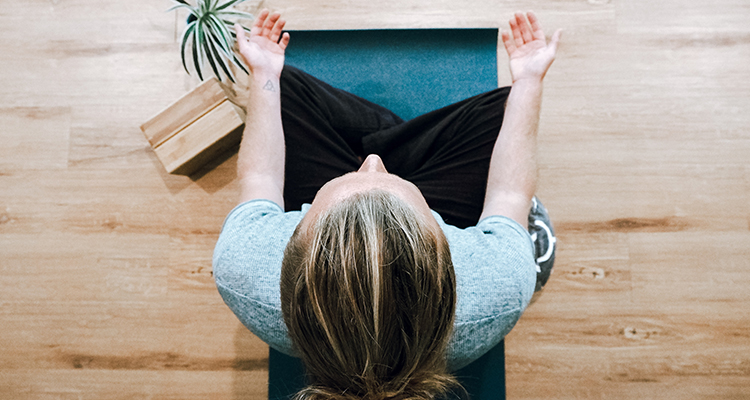
Improving alertness at work
While you are improving your sleep hygiene and seeking treatment, there are a few ways you can help yourself to stay more alert at work.

- Stay hydratedDehydration can contribute to fatigue. Ensure you’re drinking enough to help you stay alert, think clearly, and to combat fatigue.
- Eat regularlyEating regular meals helps to keep your energy levels up and regulates your body clock.
- Have healthy snacksRegularly having a healthy snack can boost your energy levels and keep you going when you feel yourself getting tired. This might include vegetables, fruit, or nuts.
- Reduce sugar intakeEnsure your snacks aren’t sugary, as this causes a crash in energy levels soon after eating.
- Stay activeYou’re far more likely to feel sleepy if you’re sitting still, so try to get up and move around as much as you can when you’re at work.
- Make the most of your breaksYou can optimize your breaks by doing some quick exercise to wake you up, or taking a quick nap if you have the opportunity. You could also get out in the daylight during your breaks to help wake you up. Take as many regular breaks as you can to help you refocus your attention on the task at hand.
- Listen to energizing musicIf you’re able to, listening to upbeat music while you’re working can be a great way to keep your spirits up and keep you energized. You could even prepare a work playlist in advance.
- Start a conversationIf you find yourself starting to feel sleepy or beginning to ‘tune out’, start an interesting conversation with a colleague. This can help you to feel more present and capture your attention.
- Use bright lightIf it’s practical, have as much light as possible around you when you’re working to help regulate your body clock and let your mind know that you should be awake. You could take an extra light with you if you work at a desk, or ask your boss if it’s possible to implement brighter lights.
- Switch tasks or break up bigger tasksWhen we’re doing a long task or something we find boring, this is when we are most likely to zone out. Try to break up bigger tasks by taking small breaks, or with a smaller more energizing task. If you can, switch tasks regularly to keep your mind active.
- Use cold waterSplashing your face with cold water can help to wake you up and make you feel more alert. A refreshing facial spray can also do the trick!
Finally, remember that you are not alone. Even though insomnia can take its toll, making work feel like climbing a mountain, remember there are ways you can tackle it. You can sleep restfully and feel energized once again.
References
Eric Suni, (2020), “Insomnia”. The National Sleep Foundation.
American Academy of Sleep Medicine, (2020), “Insomnia – Overview and Facts”.
The National Sleep Foundation, (2020), “Stress and Insomnia”.
Center for Workplace Mental Health, (2020), “Insomnia”.
Web MD, (2019), “Sleep Deprivation and Memory Loss”.
The National Sleep Foundation, (2020), “Improve Your Memory With a Good Night’s Sleep”.
Sara G. Miller, (2016), “How a Sleepless Night Affects Your Ability to Focus”. Live Science.
Dr. Michael Breus, (2018), “Here’s Why You Can’t Think Straight When You’re Sleep Deprived”. The Sleep Doctor.
The Better Sleep Council, (2020), “What Happens When You’re Awake, but Your Brain Goes to Sleep?”
Eric Suni, (2020), “Sleep Hygiene”. The National Sleep Foundation.
The National Sleep Foundation, (2020), “Treatments for Shift Work Disorder”.
The National Sleep Foundation, (2020), “Cognitive Behavioral Therapy for Insomnia (CBT-I)”.









